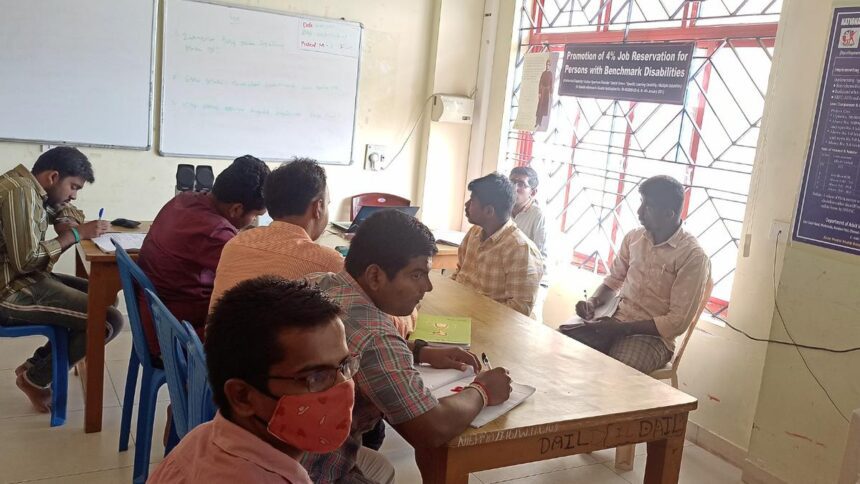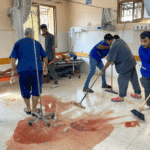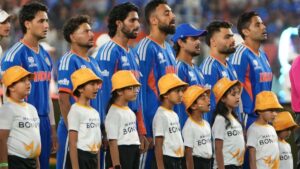Twenty-eight-year-old Haran Nataraj is set to begin his first day at work in the third week of August. Diagnosed with a Specific Learning Disability in his early childhood, Haran successfully passed two rounds of written examinations conducted by the Food Corporation of India and has been appointed as Assistant Grade III (General). “I do not have much information about my work, but I have been informed that I will be reporting to the regional head office in Chetpet,” stated Haran, who holds a BA in English from Kumararani Meena Muthiah College of Arts and Science.
Haran is notably the first candidate from the Competitive Exam Coaching Centre, operated by the National Institute for Empowerment of Persons with Multiple Disabilities (NIEPMD), to secure a government position. Established in 2022, this free coaching initiative aims to prepare individuals with various disabilities—including Intellectual Disability, Autism Spectrum Disorder, Mental Illness, Specific Learning Disability, and Multiple Disabilities—for employment in government roles.
The centre operates on weekdays from 10 a.m. to 3:30 p.m. Currently, it has 12 enrolled students, comprising three individuals with autism spectrum disorder, two with multiple disabilities, two with intellectual disabilities, and one with dwarfism coupled with locomotor disability.
K. Balabaskar, a lecturer in the Department of Adult Independent Living, explained that, akin to standard competitive exams, candidates are prepared in areas such as numerical ability, reasoning, current affairs, English, and general knowledge. The centre employs faculty skilled in accommodating students requiring specialized attention. In some cases, candidates with certain disabilities are permitted to use a scribe during exams.
Beyond academic preparation, these students receive training in interview skills, personal hygiene, independent traveling, life skills, decision-making, and problem-solving. The facility also provides access to computers with Internet and a library to support their studies. Enrollment is open to those holding a unique identification disability card, and typically, candidates must have completed Class XII or hold a degree, which is now a fundamental requirement for most government positions.
The Department of Adult Independent Living extends support beyond coaching, conducting follow-ups to ensure that candidates assimilate well into their new workplaces. “Every 15 days, we carry out follow-ups to assess how the individual is managing, including their financial handling,” remarked Balabaskar.
For more information on enrollment, interested individuals can contact Gunasekar at 877842556, Dakshnamoorthy at 8124862799, or Balabaskar at 9282934157.
In January 2021, the Government of India announced an increase in the employment reservation for Persons with Benchmark Disabilities (PwBD) from 3% to 4% across various job groups (A, B, C, and D). This mandate requires organizations to offer positions to individuals with disabilities, including autism spectrum disorder, Down syndrome, specific learning disabilities, intellectual disabilities, and multiple disabilities, complementing earlier provisions for blindness, hearing impairments, and locomotor disabilities.
The NIEPMD, located on East Coast Road in Chennai, is one of nine national institutes dedicated to empowering persons with disabilities, as established by the Department of Empowerment of Persons with Disabilities, Ministry of Social Justice and Empowerment.
In an interview with The Hindu Downtown, Nachiketa Rout, Director of NIEPMD, elaborated on the institute’s efforts to raise awareness regarding the job quota.
When asked about Haran’s successful job placement, Rout stated, “This special coaching centre was initiated on a trial basis last year. Haran’s achievement encourages us to refine our content and we aspire to attract more special educators to offer tailored coaching,” he noted.
Regarding collaborations with government organizations, Rout mentioned, “Our staff actively monitors job postings in Employment News and leading dailies to identify opportunities for our candidates. We reached out to a major atomic research facility and a judiciary body that overlooked the special quota in their postings.”
He acknowledged the challenges encountered: “Some companies remain unaware of the increased reservation quota, while others may not comprehend how individuals with multiple disabilities fit into specific job roles. Sensitizing these organizations is crucial.”
Rout also highlighted the institute’s ongoing awareness initiatives: “In February, we organized Ability Hub, bringing together over 50 small enterprises and 30 employers to foster connections. All of our initiatives are part of a continuous effort to shift perceptions toward individuals with disabilities.”










